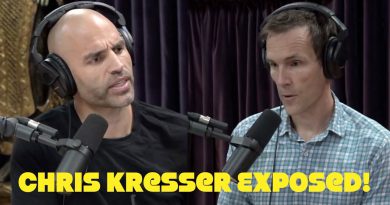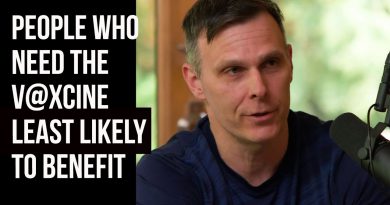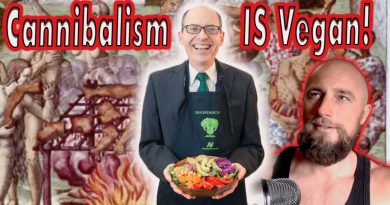Generic Drug Hoax, Journalist Exposes Industry Deception
Katherine Eban is the author of several amazing books exposing half-truths in the generic drug industry.
Bottle of Lies: https://amzn.to/35L6xrc
*Great read
Dangerous Doses: https://amzn.to/3bHYOhs
The Triumph of Doubt: Dark Money and the Science of Deception: https://amzn.to/3nTLAAF
*Excellent read, too
Show Notes:
04:50 A journalist who receives threats is telling a story that needs to be told. Katherine left the New York Times to focus on medical and pharmaceutical reporting. She spent 10 years reporting on the content of her book, Bottle of Lies. She received threats from the pharmaceutical industry.
07:43 New drugs are protected under patent for a certain number of years. When it is close to expiry, a generic company can challenge the patent in court to bring out a lower cost to the consumer or they can wait for the patent to expire.
08:27 Generic companies are allowed to bring out a generic version that is supposed to function in the body as the original drug did, once this has been approved by the FDA.
08:44 The FDA has an approval formula for measuring bioequivalents. It has to be the same molecule and roughly absorbed into the blood stream in the same amount
09:05 Generic companies often need to reverse engineer a drug to figure out how to make it with fewer steps and more cheaply. This is because brand name companies generally do not provide the drug recipe. Brand companies can strike deals with generic companies and may release an authorized generic, requiring that the generic meet specifications.
11:41 In generics, there is no cost incentive for quality. Most generics are made overseas, mostly India or China. This can create dangerous situations.
13:15 Overseas plants get months’ notice of FDA inspections. This allows them to create fictitious compliance. Manufacturing facilities in the US are required to have an unexpected FDA inspection every 2 years.
14:45 The FDA does not test drugs before they approve them. The FDA regulates companies on an honor system, utilizing data provided by the company to approve drugs. Often the data provided to the FDA is fake.
19:45 Doctors do not know that there is the potential for generics to be dangerous. It is thought that, if the FDA approves it, it is safe to take.
20:54 There is a vast quality difference between different manufacturers.
22:14 Veterinarians encounter greater quality challenges in generics because there is less regulation. Decreased regulation creates decreased quality.
25:30 Safety issues are the same with vaccines.
26:03 COVID vaccine manufacturing inspection reports are not being released. COVID vaccines are not exempt from manufacturing problems.
27:30 The Moderna COVID vaccine is made through a contract manufacturer who has had problematic FDA inspections. The Pfizer COVID vaccine is currently being made a Pfizer plants in the US.
27:49 The FDA has a team of 14 inspectors to inspect all biologics brought into the US market.
29:25 To help ensure quality and safety, we should have unannounced, rigorous and transparent inspections by FDA by teams of inspectors.
32:07 Consumers are not given a choice of drugs made in the US from the best manufacturing plants.
32:30 Approximately 80% of ingredients in all of our drugs come from overseas. Drugs should have country of origin labeling for drug components and finished manufacturing.
34:20 There were many low cost well-run/well-inspected manufacturing plants in Puerto Rico before the hurricane.
36:40 The US COVID response had been among the worst in the world. COVID response has been politicized, there has not had consistent messaging and little coordination. Katherine is currently investigating the government COVID response.
39:00 The most consequential COVID response action has been the failure to pass restrictive mask ordinances. Masks protect the wearer and protect others. Places with mask ordinances have had fewer casualties.





